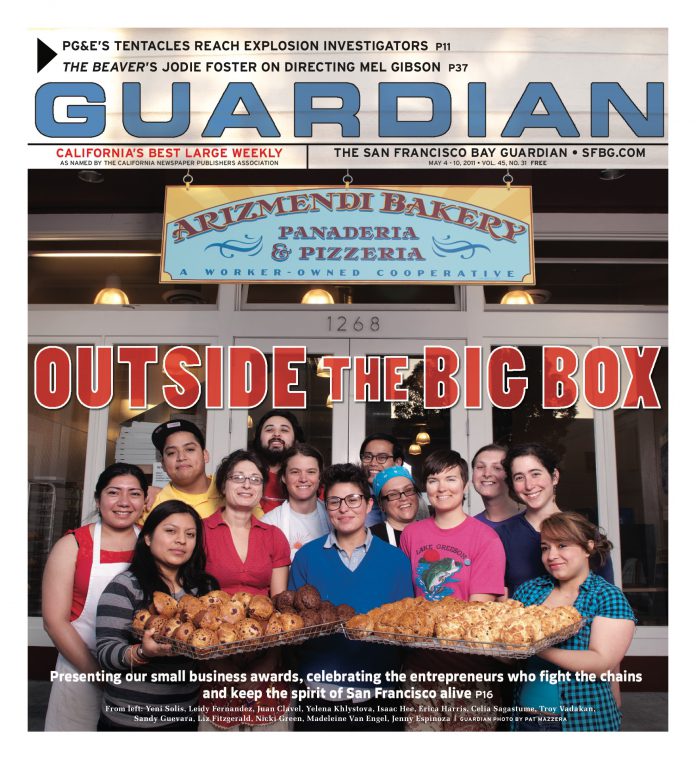arts@sfbg.com
FILM It’s been more than 15 years since Jodie Foster sat in the director’s chair, but for a project like The Beaver, she was up to the challenge. As with her past directorial projects, Little Man Tate (1991) and Home for the Holidays (1994), Foster felt a connection to the material that inspired her to take on a larger role.
“The films that I do direct are personal films,” she reflects. “Their goals are very different from the things that I act in, and they really are about an expression of who I am and what I’ve lived.”
In this case, Foster can relate to the larger issues at hand if not the specifics. The Beaver tells the unique story of Walter Black (Mel Gibson), a clinically depressed man who struggles through his suicidal desires with the help of a beaver puppet. Walter uses the puppet — which he also voices — as a way of connecting with his family and the outside world.
“What I’ve seen as the years have gone on is that there’s a pattern of what I’m attracted to and what I take on,” Foster explains. “And it’s very much about people who are having a spiritual crisis. They have to delve through that spiritual crisis head on and hopefully emerge out on the other side as changed people.”
The Beaver requires its audience to take the journey with Walter, an occasionally unsettling experience that mimics Walter’s psyche. For Foster, it was important to stay true to the story, which meant both the comedic aspects and the devastating reality of mental illness.
“It’s a strange tone, and it’s a challenge for an audience,” she admits. “They’re either up for the challenge or they’re not, and we know that. We know the film is not for everybody … As an audience member, you have to be able to go through all those tones — start out light and then little by little, kind of discover the darkness underneath.”
The script itself walks the line between dark and light — it’s the first feature from Kyle Killen, who created the critically adored but short-lived TV series Lone Star. But Foster had her work cut out for her as she strived to maintain her vision for a film that’s an undeniably tough sell.
“That was something that we really talked about,” she recalls. “How do you make this movie entertaining in any way instead of having it just be grim and boring? That’s why there’s a fable quality to this film.”
For the same reason, Foster believes Gibson was the ideal choice for the role. As Walter, he must play both the depressed man at his wit’s end and the cheeky puppet who gets Walter through it.
“I think Mel struck just the right balance between his lightness of touch and a gruffness,” Foster says. “The Beaver is not Russell Brand in Hop. He’s got a deep, dark voice. He’s lewd. He’s tough. [Mel] can be witty and light, and he can also go to an incredibly dark place.”
But can audiences, who lack Foster’s personal relationship with Gibson, look past the man’s public troubles? In the past year alone, Gibson has faced accusations of racism and domestic violence.
Foster believes Gibson’s performance transcends any negative press he has endured. And since she has little control over what audiences will ultimately think, she chooses to focus on the positive.
“At this point I’ve kind of thrown up my hands,” Foster says. “The really good news is I got to make a movie I love. I am so genuinely grateful, and it does have its own reward.”
THE BEAVER opens Fri/6 in San Francisco.

